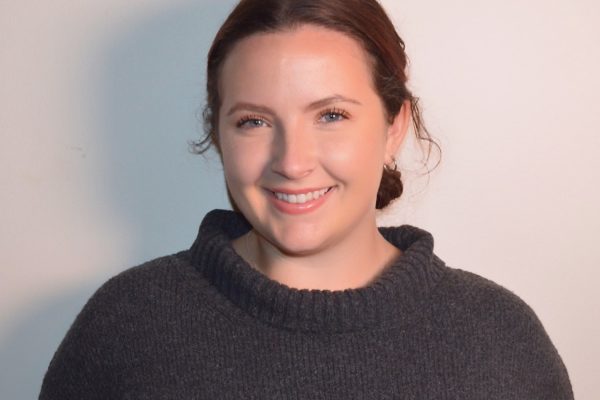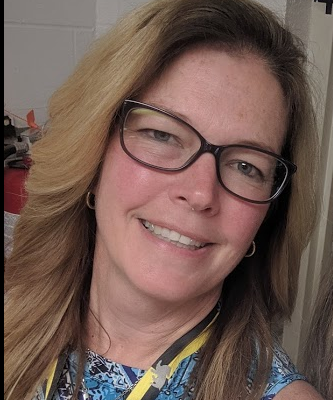November Learning’s Building Learning Communities Conference was abuzz with education’s greatest challenge: the need to shift its course to meet the needs of an innovation driven society instead of the agrarian era on which the system was built. The focus of the conference was our collective goal of bringing educational practice forward, not on tools, technology or any particular pedagogical trend. Alan November is dedicated each year to gathering innovative thinkers who are dedicated in promoting positive educational environments and outcomes for students. The 2018 BLC Conference was no different. This four part blog post brings the themes of the conference together in an EPIC way. Engagement, Passion, Inquiry, and Connection encompassed those in attendance all week. Each OnCUE post will feature one of the four themes that tugged at our heart strings and our educator mindsets, and are themes that we are confident will be evident at the MassCue Annual Conference in October.
Engagement By Rayna Freedman & Tracy Sockalosky
The Building Learning Communities Conference sent a strong message to educators from around the world about the importance of shifting school culture with a focus on engagement. Topics covered ranged from going gradeless, exciting learners and educators with dynamic methods of instruction that allows them to ask bigger questions, and providing feedback in meaningful ways that helps scaffold the learning process. Engaging parents in the learning process or educators in a district digital roll out plan spoke of taking risks and being inclusive to build community. They keynote speakers shared personal stories about motivating learners, the power of perception, and risk taking in education.
Each year Alan November invites educators to keynote and to challenge those in the room to consider education in a new light or with a new perspective. Every year participants walk out of those keynotes inspired, not because the ideas are revolutionary, but often because the speaker has articulated so well a concept or an idea that many have been grappling with on their own. This year’s opening keynote speaker was Dr. Marc Brackett, head of Yale’s Center for Emotional Intelligence. Any educator can attest to the impact emotion has on learning and yet emotional intelligence has only recently become a greater focal point in education. But even with the increased focus on social-emotional learning, many still consider emotional intelligence a soft-skill. Brackett eloquently called this belief “ridiculous” and stated that the “brain is replete with emotions…we need to learn regulate them.”
According to the data Dr. Brackett shared, 75% of college and high school students polled reported negative words to describe their academic experience. Students are stressed and tired, but what does stressed actually mean? Brackett spoke passionately about how we as educators need to help students learn to more effectively communicate their emotions and to how to navigate their life because we all have emotions. We have to teach children these skills in a proactive method, not wait until they are struggling and apply in a reactive manor. A study that Brackett’s center conducted revealed that 50% of college students have sought or are currently receiving mental health treatment. The reactive intervention method is not working for our students.
Dr. Brackett closed with the same Teddy Roosevelt quote with which he began his talk, “No one cares how much you know, until they know how much you care.” We encourage you to spend time exploring the Center for Emotional Intelligence “Ruler” program and other ideas for ways to integrate emotional intelligence into classroom curriculum. A common takeaway for many participants as they left the keynote was that this year we will ensure that our students know that we care by helping them to name and express their emotions in productive ways. Emotions drive learning, so we all need to get behind that wheel and engage.
Rayna Freedman is a fifth-grade teacher at the Jordan/Jackson Elementary School in Mansfield, Mass. She has taught grades 3-5 and is an ITS. She is president elect of MassCUE and has been presenting at annual conferences since 2010. She is a BrainPOP certified educator, Flipgrid Ambassador, Fablevision Ambassador, and advocate for teaching digital citizenship in the classroom. Rayna is a Level 2 Google Certified Educator. She serves on the Massachusetts DESE Digital Literacy and Computer Science Standards Panel. She can be found on Twitter @rlfreedm.
Tracy Sockalosky is 7th Grade Social Teacher and Social Studies Curriculum Leader at Wilson Middle School in Natick, MA. She is a member of the MassCUE Board of Directors and has been presenting at the annual conference since 2012. In her 18th year in education, Tracy has served as a classroom teacher and as an instructional technology specialist. She is a United States Holocaust Memorial Museum Teacher Fellow and USC Shoah Foundation Teacher Innovator. She has been a member of the EdCamp Boston organizing team since 2011 and is a huge proponent of unconferences and social media as a means of professional development for teachers. She can be found on Twitter @tsocko.
 Print this post
Print this post



